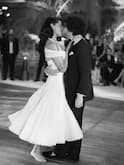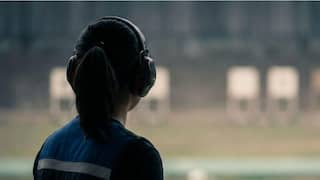Singer-Dancer Paula Abdul Accuses American Idol Executive Producer Of Sexual Assault
Singer-dancer Paula Abdul has alleged in a lawsuit that she was twice sexually assaulted by Nigel Lythgoe, the executive producer of ‘American Idol’ and ‘So You Think You Can Dance’.

Los Angeles: Singer-dancer Paula Abdul has alleged in a lawsuit that she was twice sexually assaulted by Nigel Lythgoe, the executive producer of ‘American Idol’ and ‘So You Think You Can Dance’.
Abdul rose to stardom in the late 1980s and built a second career as a judge of reality show competitions in the early 2000s.
In the suit, she alleges that during one of the early seasons of ‘American Idol’, Lythgoe sexually assaulted her in an elevator, reports Variety.
She alleged that he shoved her against a wall, groped her, and shoved his tongue down her throat. According to the suit, she tried to push him away, and as soon as the door opened, she ran to her room, as per Variety.
Years later, Abdul was a judge on ‘So You Think You Can Dance’. Lythgoe invited her to his home for dinner, and she accepted, thinking it would be a professional encounter. However, according to the suit, Lythgoe forced himself on top of her while she was sitting on his couch, attempted to kiss her, and said they would make a great “power couple”. Again, she pushed him away and fled his home, the lawsuit states.
Variety further states that the suit also accuses Lythgoe of verbal harassment and bullying, and alleges that Abdul was discriminated against, and was paid less than male judges on ‘American Idol’.
The suit further alleges that the show would be edited in a misleading way to make her appear inept. Additionally, Abdul alleges that she witnessed Lythgoe sexually assault one of her assistants in April 2015, pressing up against the assistant and groping her without consent.
The lawsuit states: “For years, Abdul has remained silent about the sexual assaults and harassment she experienced on account of Lythgoe due to fear of speaking out against one of the most well-known producers of television competition shows who could easily break her career as a television personality and of being ostracised and blackballed by an industry that had a pattern of protecting powerful men and silencing survivors of sexual assault and harassment.”
According to the suit, Lythgoe called Abdul once and taunted her, saying it had been “seven years and the statute of limitations had run.”
Abdul signed non-disclosure agreements as part of her employment on both reality shows, which prevented her from disclosing confidential or derogatory information.
(This report has been published as part of the auto-generated syndicate wire feed. Apart from the headline, no editing has been done in the copy by ABP Live.)
Related Video
Salman Khan Birthday: Salman Khan Celebrates 60th Birthday in Grand Style at Panvel Farmhouse





































